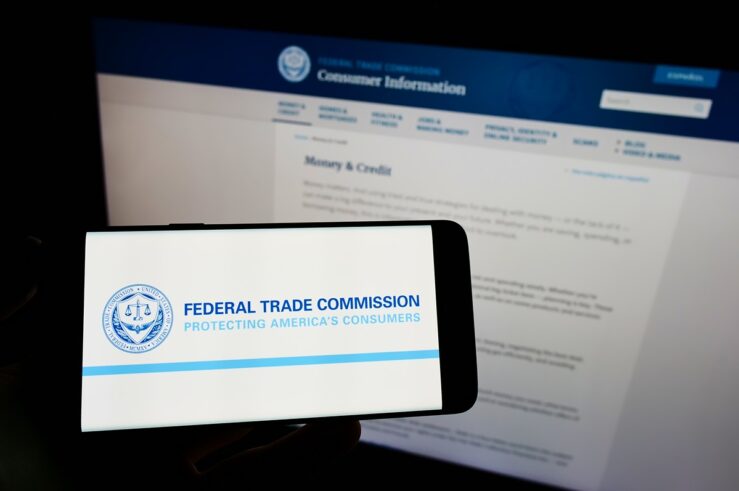Josh’s thoughtful response (Bitchslap? Nah.) to my post criticizing the Ninth Circuit’s recent Masimo decision raises a number of important matters. I started to just submit a comment to Josh’s post, but then I figured a reply was post-worthy. (I don’t want the antitrust nerds who read these technical posts — and here’s to you, dweeby friends! — to miss the discussion.)
Here’s a run-down of the discussion so far:
I criticized the Masimo court for reasoning that a plaintiff complaining of a rival’s bundled discounting may proceed on a de facto exclusive dealing theory when (1) there’s no express covenant of exclusivity (so it is merely the defendant’s low prices that are leading buyers to forego rivals) and (2) the defendant’s bundled discount would pass muster under the Ninth Circuit’s PeaceHealth standard. Under that so-called “discount attribution” standard, a bundled discount is immune from liability if each product in the bundle is priced above cost after the entire amount of the bundled discount is attributed to that product alone.
The basis for the PeaceHealth court’s safe harbor was a desire to immunize bundled discounts that cannot exclude any single-product rival that can produce its own product as efficiently as the defendant. After all, any bundled discount that results in above-cost pricing on each bundled product, even after the entire discount amount is attributed to that product, could be matched by, and thus cannot exclude, any equally efficient single-product rival. Because such discounts do not make it impossible for equally efficient rivals to stay in the market, the PeaceHealth court reasoned, they are not unreasonably exclusionary.
In my initial post, I argued that this same analysis should apply even when the bundled discount is so successful that it induces customers to drop rivals’ brands and to purchase only from the discounter. If a discounter doesn’t procure a contractual covenant of exclusivity and instead just offers a really attractive discount, that discount, which provides immediate consumer benefit, should be immune from liability as long as it doesn’t threaten to exclude an equally efficient rival. The discount can’t pose such a threat unless it’s so extreme that an equally efficient single-product rival (who must match the entire dollar amount of the bundled discount on its single product) could not match it, and that will be the case only if the discount results in a below-cost price on some item in the bundle after the entire amount of the discount is attributed to that item. Thus, I argued, an allegation (or even proof) that a bundled discount resulted in de facto exclusive dealing should not alter the PeaceHealth safe harbor.
Now, there are two ways one might interpret my position. I could be saying simply that the optimal liability rule would not condemn de facto exclusive dealing induced solely by bundled discounts that pass muster under PeaceHealth. I could appropriately stake that claim, even if I acknowledged potential anticompetitive harm from such discounts, if I concluded that the likelihood and magnitude of such harm was low and the likelihood and magnitude of harm from “false positives” (i.e., improperly condemned discounts) was high. Alternatively, I could be making a more aggressive economic claim, asserting that de facto exclusive dealing accomplished via bundled discounts that satisfy PeaceHealth cannot be anticompetitive.
In his thoughtful and nuanced post, Josh suggests he might, given more empirical analysis, agree with the former position (about what liability rule is optimal, given error costs). But he rejects the more aggressive economic claim. That claim, he maintains, is deficient because it fails to account for the fact that bundled discounts resulting in de facto exclusive dealing may “raise rivals’ costs” even if the discounts would pass muster under PeaceHealth.
Here’s the intuition (my understanding of it, at least): A bundled discount that’s big enough to usurp lots of business from the discounter’s rivals, but not big enough to run afoul of PeaceHealth, may still preclude those rivals from attaining minimum efficient scale (i.e., the output level at which all scale economies are exhausted). The discount may thus prevent rivals from achieving equivalent efficiency with the discounter. That would be anticompetitive. Thus, it is not true, as I said, that “[w]hen it comes to bundled discounts, … there can be no anticompetitive harm in the form of predation, unreasonable exclusion, or foreclosure if the competitive product is priced above the defendant’s cost once the entire discount is attributed to that product.” Rather, Josh suggests, a bundled discount that results in substantial foreclosure of the discounter’s rivals may raise those rivals’ costs and thus be anticompetitive, even if the discount would pass muster under PeaceHealth and therefore not amount to predation.
So what to make of all this?
First, I concede that my most important point was the former point about the optimal liability rule. Discounting is good. We should avoid chilling it. The PeaceHealth discount attribution test creates a nice — and really quite narrow — safe harbor for discounts that are almost certainly going to provide greater benefit than harm to consumers, even over the long term. Because bundled discounting can be easily analogized to many behaviors well-known to antitrust practitioners and tribunals (e.g., exclusive dealing, tying), allowing plaintiffs to close off the PeaceHealth safe harbor by attaching some other label to an instance of bundled discounting would largely eviscerate PeaceHealth, whose standard makes tons of sense from a decision-theoretic perspective that seeks to minimize the sum of decision and error costs. Creative labeling should not enable a plaintiff to avoid PeaceHealth’s sensible rule. To quote the Bard, “What’s in a name? That which we call a rose by any other name would smell as sweet.”
Second, I’m going to go out on a limb and defend (at least a version of) the more aggressive economic claim. Specifically, I’m going to say that a bundled discount that passes muster under PeaceHealth, even if it results in de facto exclusive dealing, cannot be “unreasonably exclusionary” (the touchstone for monopolistic conduct under Section 2 of the Sherman Act).
Here’s why I say this:
First, as I’ve noted on this blog and elsewhere, we don’t have an agreed upon understanding of what it means for conduct to be “unreasonably exclusionary.” I am partial to the definition offered by Judge Posner: Conduct is unreasonably exclusionary if it is capable of excluding from the defendant’s market an equally or more efficient rival. If that’s the proper understanding of unreasonable exclusionariness, then no bundled discount that passes muster under PeaceHealth (all of which could be matched by, and thus could not exclude, equally efficient rivals) can be unreasonably exclusionary. And that’s true even if the discount at issue results in market foreclosure via de facto exclusive dealing, de facto tying, or otherwise.
Now, no one in the world (to my knowledge) shares my affinity for the Posner definition (save, perhaps, for the good judge himself, but one never knows with him these days). One of the main criticisms of the definition is that it fails to account for conduct that can’t exclude equally efficient rivals but can prevent rivals from attaining equivalent efficiency. Raising rivals’ costs seems bad, right?
Well, not always. Everything a seller does that wins business from its rivals has the potential to reduce those rivals’ scale and thereby raise their costs. When Acme builds a better mousetrap and most consumers start buying its product over Rivalco’s, Rivalco’s output may fall with reduced demand and its per unit costs may therefore rise. Has Acme acted in an unreasonably exclusionary manner because it raised its rival’s costs? Of course not. We therefore need to clarify that it’s unreasonably exclusionary only to “raise rivals’ costs unjustifiably.” But what makes an instance of cost-raising “unjustifiable”? I’m still waiting on a good answer to that one. (To his credit, Professor Einer Elhauge posited a test in this article, which I criticized here.)
Now, there have been several other tests for exclusionary conduct. I’ve criticized them elsewhere (again, here and here), so I won’t do so now. I’ll limit myself to the criterion Josh mentions. Suffice it to say, I’m unwilling to say that a business practice that cannot exclude an equally efficient rival is unreasonably exclusionary because it might raise rivals’ costs. I realize that leaves me with a pretty lenient (underdeterrent?) definition of unreasonably exclusionary conduct, but I think that’s appropriate, especially for non-clandestine antitrust behaviors (like bundled discounting) that are likely to be over-deterred by antitrust’s treble damages remedy, which was designed to achieve optimal deterrence of secret conduct like horizontal price-fixing.
I realize that all I’ve done so far is posit a test for exclusionary conduct that assures I’ll win the debate over whether bundled discounts that pass muster under PeaceHealth can ever be unreasonably exclusionary. Lest I simply preach to the choir, I should probably offer an argument that might appeal to folks that don’t share my affinity for the (much-maligned?) Posner test. So here’s a stab:
It is quite common for upstart rivals of established sellers to experience periods in which they must price below their costs in order to grow their market share to a point at which they achieve minimum efficient scale and thereby meet or exceed the experienced firms’ efficiencies. Indeed, virtually every new business experiences some start-up or expansion phase in which its per unit costs exceed its per unit revenue (i.e., the price it charges). Businesses must, for example, build productive facilities of the requisite size, produce marketing and advertising materials, give away free samples to generate consumer interest, and incur all sorts of other start-up costs. As the old saying goes, it takes money to make money.
Yet, businesses that truly have a superior offering (in that their products are at least as good as their rivals’ and can be produced as cheaply at minimum efficient scale) routinely manage to muscle through these periods of below-cost pricing and grow to a scale at which they achieve equivalent efficiencies. They do so by convincing investors and lenders that their product is superior to competing products and will eventually command enough consumer loyalty to warrant production at the level required to attain all available economies of scale. When they in fact have a “better mousetrap” and plausible plans for efficiently producing that mousetrap, they should have little trouble raising start-up funds.
As I have elsewhere explained in defending a rule of per se legality for above-cost loyalty (single-product) discounts:
Just as a business must incur costs early on to establish the market share required to achieve minimum efficient scale, it might — if its margins were not great enough to fund a competitive discount — have to incur similar costs to recover market share from a discounting rival and thereby protect or enhance productive efficiencies. But the fact that it has to incur such costs does not mean it is being “excluded” from the market. If the disadvantaged rival’s product was as good as the discounter’s and could be produced as cheaply at minimum efficient scale, the rival should be able to raise enough capital to fund any discount necessary to grow its market share to the point necessary to achieve minimum efficient scale. Its below-cost pricing for the period required to achieve such a scale would not amount to predation because there would be no likelihood of recoupment via supracompetitive pricing. Were a rival unable to achieve minimum efficient scale by pricing just below the discounter’s above-cost discounted price and thereby winning business from the discounter, it would be because the capital markets perceived the rival’s product to be inferior to the discounter’s, and the rival’s loss of business would thus be deserved.
That argument would seem equally applicable in the bundled discounts context. Thus, any “competitive rival” — defined as a rival who is as efficient as the bundled discounter or who would be so if it grew its output to minimum efficient scale — could not be excluded from the market by an above-cost loyalty discount [Are you listening, AMD?!] or by a bundled discount that resulted in above-cost pricing on each item in the bundle after the entire amount of the discount was attributed to that item. I, for one, believe that any discount regulation aimed at keeping some rivals in the market should protect only “competitive rivals,” as defined above. The PeaceHealth standard does so.
***
So to summarize: I think Josh and I are in agreement (or near agreement?) on the more modest point that PeaceHealth should apply to bundled discounts that result in de facto exclusive dealing because a more stringent rule is likely to increase error costs. I would go a bit farther and say that bundled discounts that pass muster under PeaceHealth, regardless of the “foreclosure” they generate, cannot be unreasonably exclusionary because (1) unreasonable exclusionariness requires more than just “raising rivals’ costs” and (2) any competitive rival (as defined above) could match a bundled discount that falls within PeaceHealth’s safe harbor.
And if you read all this, congratulations! You are officially a giant antitrust nerd.




